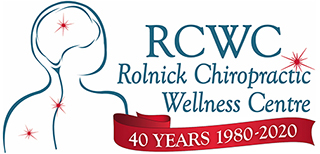Enhance Your Health
Health Tip of the Week: Sun Exposure
Skin cancer is a huge problem. The problem begins with sun exposure. This is where the topic can get tricky. Experts agree that over exposure to the sun, via burning of the skin is a catalyst for many skin issues including skin cancer.
The conundrum is that exposure to the sun is of extreme benefit to the body. This is in fact due to vitamin D3. Vitamin D is the sunshine vitamin. It is created in the body by the sunlight’s radiation on the skin. Vitamin D is important to the body due to its beneficial effect on the immune system. Vitamin D3 improves the effectiveness of the immune system and is known to help the body prevent viruses such as the flu. This is why there is a flu season in the winter and not the summer. Also, vitamin D has been shown to decrease the risk of certain cancers.
The problem then becomes how do we balance our sun exposure to get the proper amount of vitamin D without increasing our risk of skin cancer? The answer is not tricky, but the solution can be difficult and requires effort on your part.
First off, the body needs sun exposure for optimum health. The sun’s rays cannot be blocked by applying sun block and sun lotions. The sun’s rays need to hit the body to create vitamin D. There is a way to do this without increasing your risk of skin cancer. This is called healthy sun exposure to the skin.
As we enter the warmer months, the body needs to be slowly introduced to the sun’s rays. Initially, the body’s unprotected sun exposure should be about 10 minutes. That is it.
For the body to maximize vitamin D creation, your body needs to be fully exposed to the sun. This means, you need to be in a bathing suit with most of your body exposed to the sun. After a few days of 10 minute sun exposure, you can gradually increase your exposure time to 20 minutes of unprotected sun.
20 minutes a day is enough time to get the full health benefits of the sun without damaging the skin. Once the 20 minutes is up, it is time to get out of the sun and protect your body from further exposure. There are many ways to do this, such as covering up with shirts and hats, sitting under an umbrella and adding sun block to your skin with an SPF of at least 30.
Sun block has also become an issue, as there is legitimate debate that most sun blocks contain harmful chemicals that are being absorbed into the skin, which some scientists think can lead to skin cancer. That being said, there are plenty of safe sun blocks and skin protection on the market made with 100% natural ingredients and or organic ingredients. These are much better to use on your skin.
Recent research is showing that certain vitamins may help the skin prevent sun related skin cancer. Turmeric is a spice that is extremely popular in Asian countries. Studies show that people who consume turmeric on a daily basis have a lower risk of skin cancer.
Lastly, as reported recently in the news, niacinamide (a form of vitamin B3) has been shown to decrease the risk of skin cancer. One study showed that people who have had skin cancer treatments were less likely to have reoccurrences of skin cancer while taking daily doses of niacinamide.
Thought for the Week
A perfect summer day is when the sun is shining, the breeze is blowing, the birds are singing, and the lawn mower is broken. ~ James Dent
Chiropractic Thought for the Week
If you have a yard, you have been working in it. Gardening, raking, digging, lifting and mowing are all common yard activities. Not to mention other things like powerwashing, painting and moving outdoor furniture. All of these activities can strain muscles of the lower back causing subluxations of the spine. Once that happens, symptoms can occur such as back aches, back pain, restriction of movement and muscle spasms. Time for a chiropractic adjustment to set the spine straight.
More importantly, don’t wait until you hurt your back. Preventative chiropractic care can keep you in the yard, working hard without the pain! Chiropractic first, health first.

